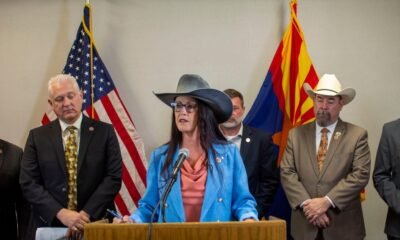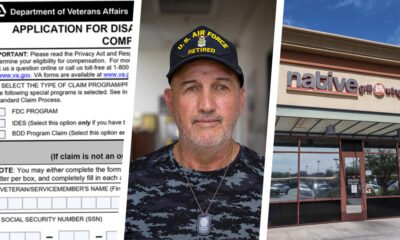family
Tribes Demand Access and Sovereignty Over Their Own Health Data

Stephanie Russo Carroll, a member of the Native Village of Kluti-Kaah in Alaska, has spent 15 years advocating for tribal health data sovereignty. Her journey began when she pursued a doctorate focused on health programs in six tribes, encountering significant obstacles in obtaining essential vital statistics like birth and death rates from state databases.
“Health outcomes data were unobtainable,” Carroll noted, recalling how her team had to resort to using breastfeeding rates as a proxy for estimating birth rates, a task that proved nearly impossible due to incomplete data. This challenge ignited a long-term commitment to ensuring U.S. tribes, recognized as sovereign nations, could control their own health data.
The concept of data sovereignty is particularly critical in light of stark health disparities afflicting tribal populations, a legacy rooted in historical injustices. Information about these communities has often been collected by state and federal agencies without reciprocal sharing of data, compromising tribes’ ability to address pressing health needs effectively.
Systemic barriers have contributed to this data gap. Misunderstandings by federal officials regarding the secure transmission of sensitive information have led to the withholding of crucial health data, impacting tribal responses to public health crises, such as the recent COVID-19 pandemic and other health issues endemic to these communities.
Now an associate professor at the University of Arizona, Carroll co-founded the U.S. Indigenous Data Sovereignty Network and leads the Collaboratory for Indigenous Data Governance, both focused on improving Indigenous data governance. “If you don’t know who has been sick or hospitalized,” Carroll emphasized, “how can you ensure proper care systems are in place for your community?”
In a significant move, the Tulalip Tribes in Washington state secured a groundbreaking data-sharing agreement with the state health department, allowing them direct access to disease reporting systems. This agreement, the first of its kind in Washington, aims to enhance the tribes’ ability to monitor and respond to health crises, demonstrating the potential for successful collaborations between tribal and state entities.
Despite these progressions, federal health officials have historically denied tribes direct access to health data, including crucial COVID-19 information. Tribal leaders argue that access to data is not just a matter of public health but is also tied to treaty rights, underscoring the importance of accurate data in advocating for their communities’ needs.
Recent reports indicate an alarming trend of inadequate data collection concerning Native populations during the COVID-19 pandemic. American Indian and Alaska Native individuals faced disproportionately high rates of infection and mortality compared to white populations. The lack of precise data on these communities has impeded effective public health responses, raising concerns about the implications of misclassification in health records.
Community leaders, like Abigail Echo-Hawk from the Urban Indian Health Institute, stress the urgency of these issues. “This information is about our children, and it’s our legal right to have access to that data,” she asserted, highlighting the importance of accurate statistics in addressing mental health conditions among Native youth.
As the federal government reevaluates its approach to data collection, advocates for Indigenous data sovereignty see this as a critical opportunity to secure the rights of tribes to manage their own health information. Without such control, the health and wellbeing of tribal communities remain at risk, in a struggle that reverberates through generations.


















